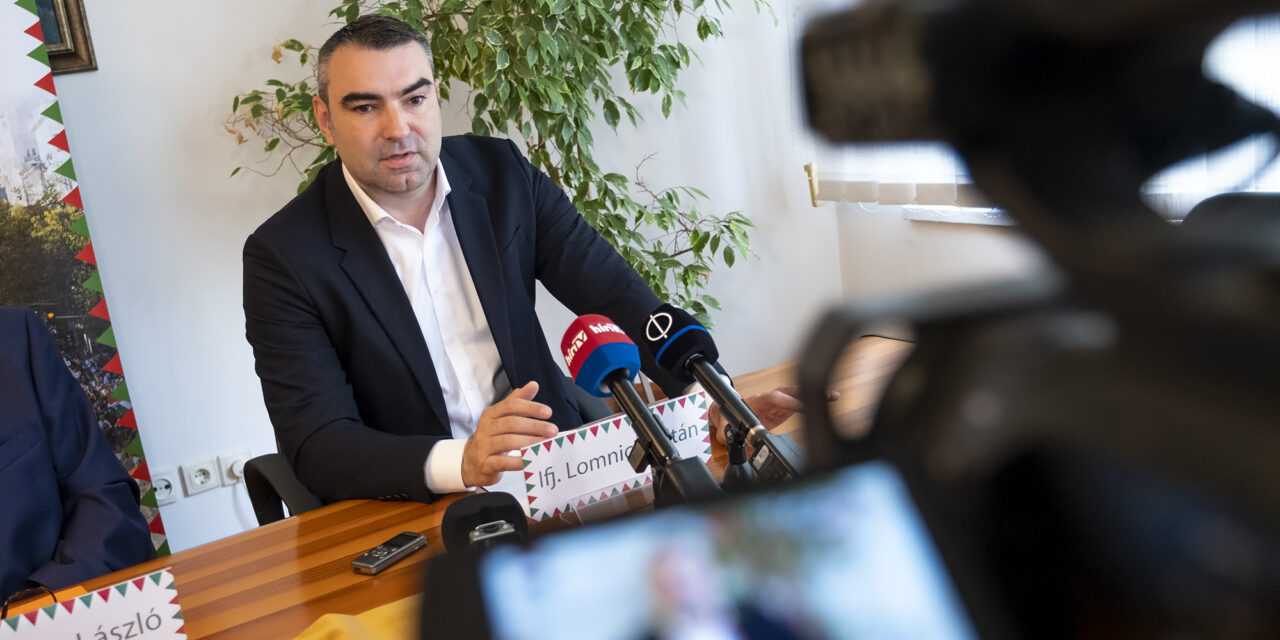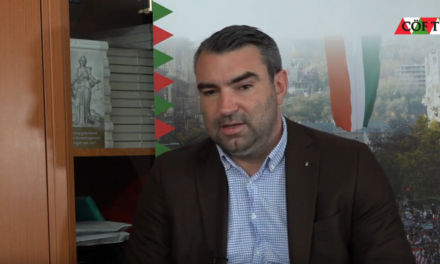Foreign-supported organizations struggle with a democratic deficit and represent the business and political interests of their own financial backers.
It is well known that the Hungarian government has been fighting its independence struggle in the international and EU space for years. Due to the constitutional self-identity of sovereign Hungary, within the framework of the rule of law, it wishes to exercise control over attempts to influence from abroad, with reference to the democratic principle of popular rule. This question is mainly related to the problem of disproportionate foreign and domestic influence in relation to social legitimacy.
Foreign-supported organizations struggle with a democratic deficit and represent the business and political interests of their own financial backers.
The strange feature of the rolling dollars scandal is that in America, attempts to influence from abroad are taken very seriously. The already mentioned Foreign Agents Registration Act (FARA) was adopted in the United States in 1938, which, for example, requires agents engaged in political activities on behalf of foreign principals or in connection with specified other activities to regularly make public their relationship with the foreign principal, as well as the activities, income, payments supporting this relationship.
The law therefore specifically makes the registration of groups, parties, and other organizations that carry out public activities based on foreign interests mandatory overseas.
Anyone who intentionally makes a false statement about a material fact or intentionally omits any material fact that must be stated, or if the statements contained in his statement or the copies of the documents attached to them are misleading, is subject to a criminal penalty of up to $250,000 or up to five years in prison. is punishable by up to 10 years imprisonment according to the federal code.
During the application of the aforementioned law, for example, in 2021, in the Central District of California, the philanthropic political lobbyist Imaad Shah Zuberi, who collapsed in a joint photo with President Obama, was sentenced to twelve years in prison - including the maximum five years required by the FARA law - and a total of $15.7 million ordered to pay restitution and $1.75 million in criminal fines. Zuberi pleaded guilty in 2019 to FARA violations, tax evasion and nearly $1 million in illegal campaign contributions, including money from foreign organizations used to influence US elections. In 2020, unlike Zuberi in Washington, right-wing businessman Elliott Broidy - who has been in the news with the former president and former adviser Steve Bannon - also pleaded guilty to violating FARA after he and others agreed in exchange for millions of dollars to they cooperate in secret bids by lobbying senior US government officials in cases pending at the Department of Justice. Broidy admitted to representing Chinese and Malaysian interests.
But here we can mention that the federal court in Washington found the rapper Pras Michel, the former performer of The Fugees, guilty of colluding with the Chinese government. The Grammy-winning entertainer was on trial on multiple charges over a botched conspiracy to help Malaysian businessman Jho Low and the Chinese government gain access to US officials, including former presidents Barack Obama and Donald Trump. Michel now faces up to twenty years in prison after being found guilty of conspiracy to defraud the United States, witness tampering and acting as an unregistered agent of a foreign government.
The Lobbying Disclosure Act of 1995 clarified the definition of lobbying and exempted from FARA those lobbyists who engage in lobbying under laws enacted by Congress.
Protection against lobbying of foreign origin is ensured more effectively in America than in the European Union from the point of view of national security.
In contrast to Europe, lobbying is now a respected profession in the United States, but it was necessary to create a strict and fiery set of rules. The example of the United States has proven that by making lobbying more transparent, not only can trust in public institutions increase, but by whitewashing lobbying, a socially respected profession with norms and ethical rules can also be created. It should be noted that the main difference between the lobbying regulations of the USA and the EU is that NGOs and other political actors operating as foreign agents would hardly be able to gain political influence as freely, by exploiting legal loopholes, as they do in Brussels.
Campaign finance laws regulate the financial support, advertising, accounting, and conduct of campaigns in the United States, generally organized efforts to achieve political goals. There are many types of contribution limits and reporting requirements that must be met during federal elections.
In general, all donations during campaigns must be declared, only limited amounts can be received by candidates from individual individuals and organizations, and they can be supported indirectly through independent expenditures.
The Federal Election Campaign Act prohibits foreign nationals from campaigning for a political candidate in any U.S. federal, state, or local election. Similarly, US candidates may violate this law by receiving, soliciting, or accepting foreign contributions. In this context, a foreign national is anyone who is not a US citizen and who does not have a green card. In 1974, the law was amended to create the Federal Election Commission and further regulate campaign spending.
The Logan Act is also a guaranteed federal rule, according to which anyone, except a diplomatic, consular official or attaché, acts in the United States as an agent of a foreign government without prior notification to the Secretary of Justice, is punishable by a fine or up to ten years in prison, wherever he is . And whoever, without the permission of the American government, directly or indirectly begins correspondence or contacts or continues with any foreign government or any of its representatives in connection with any dispute with the United States, or for the purpose of obstructing the action of the United States, may be held responsible under this title, and is punishable by a fine or imprisonment of up to three years.
There was also a US lobbying case involving court-ordered Secret Service surveillance. According to the 2017 article, former National Security Advisor Michael Flynn was paid $530,000 for lobbying a Turkish company with ties to the country's government during the presidential election campaign. The question is: can an American person then be considered an agent of a foreign power under the US Foreign Intelligence Surveillance Act?
In other words, can a person engage in conduct that qualifies him or her as an agent of a foreign power under the statute, or as a foreign agent under FARA?
According to the laws not only of America, but also of our country, the social mission of parties and politicians is to form and express the will of the people, as well as responsible citizen participation in political life, not to assert foreign interests in their own country. Either during the election campaigns or outside of them.
Featured image: constitutional lawyer Zoltán Lomnici Jr., spokesperson for CÖF-CÖKA / Photo: Civilek.info












